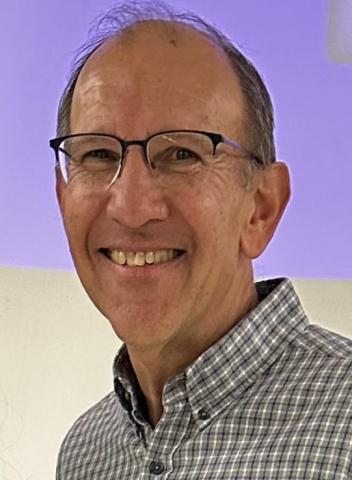Meet Faculty Member, Daniel Levy, PhD
Daniel Levy PhD, is a neuropsychologist dedicated to understanding the core processes and brain systems that comprise human memory and learning. He joined Palo Alto University (PAU) this year as an associate professor after serving as dean of the school of psychology at Reichman University in Herzliya, Israel. At PAU, he continues his cognitive neuroscience investigations while preparing PhD students for the neuropsychology emphasis.
Dr. Levy’s research examines the involvement of the brain’s core recollection network in long-term memory. He uses insights from contemporary memory research to create novel applications to aid rehabilitation and training. His lab examines the use of neurofeedback, neurostimulation and sleep to promote new learning and memory.
Dr. Levy’s fascination with understanding the processes of the human mind began with a philosophical approach, an outgrowth of his studies at Yeshiva University in New York City, where he earned a bachelor’s in education and a master’s in biblical studies. “I was interested in exploring consciousness and what it means to know something,” he said. This led him to Hebrew University, where he took advanced classes in philosophy. Dr. Levy quickly realized that while philosophy asks many probing questions about the nature of human awareness, there were no definitive answers. “I wanted answers,” he said. He was drawn to the empirical approach of psychology and neuroscience. In 1997 he enrolled in Hebrew University, where he earned a PhD in Psychology, graduating Summa Cum Laude.
While pursuing his PhD Dr. Levy felt fortunate to begin his doctoral work exploring questions about cognitive neuroscience, which has a strong approach towards understanding the “thinking” side of the human experience as opposed to the “feeling” side. However, it was his postdoctoral fellowship at the University of California-San Diego that focused his research on the brain and the basis for human memory. “And that’s been the primary focus of my research ever since,” he said. As a cognitive neuropsychologist, Dr. Levy researches memory and how it works, how the brain makes new memories, and how it transforms and holds on to information and retrieves it when we want to remember our past.

Upon completing his post-doctoral work in California, Levy returned to Israel and began his academic career as a neuropsychologist at Reichman University in 2008. “This was a very exciting time because I was part of a team that established the school’s psychology department,” said Dr. Levy. For many years he was also responsible for the school’s international program, where students from more than 60 countries would come to study psychology. Here he researched basic and applied cognitive neuroscience focusing on memory, attention, and cognitive aging. Over the years, he has collaborated with colleagues from all over the world and has received grants and funding from numerous sources, including the U.S.-Israel Binational Science Foundation and the National Science Foundation, the National Science Foundation of China & Israel Science Foundation, and the German-Israeli Foundation for Scientific Research and Development, among many others.
Two years ago, Dr Levy was interested in moving back to the United States and considered the Bay Area as a place to relocate. “I was aware of PAU’s work in preparing PhD students for the neuropsychology emphasis and proposed that I teach a course on an adjunct basis, “ he said. This summer, he joined the faculty full-time and sees many opportunities to collaborate with other PAU researchers and colleagues at institutions in the Bay Area.
Most immediately, he sees opportunities for collaboration at the Veterans Administration Hospital in Palo Alto. “There’s a strong focus on the war-related brain injury and illness veterans are suffering from called the Gulf War Syndrome,” said Dr. Levy. Among its many symptoms are impaired brain functions, persistent cognitive and mood impairments, and concentration problems. Dr. Levy has developed an intervention to enable people to manipulate the frequency of their electrical brain activity to help them strengthen new memories, learning, or experiences.
In addition to his empirical research, Dr. Levy remains fascinated by issues at the interface of psychology and philosophy and has written about the neuroscience of free will and the neurobiology of punishment and its legal implications.
When Dr. Levy is not in his laboratory studying the brain or in the classroom teaching, one might find him spending time with his family or hiking the hills surrounding his Berkeley home. Someday, we might find Dr. Levy back in his native New York City, not in the Queens neighborhood where he grew up, but possibly on Broadway.
“I’m putting the finishing touches on a musical I’m writing,” he said. “When the lyrics are complete, I’m taking it right to Broadway,” he laughed.


